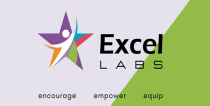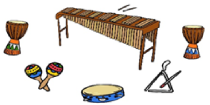Learning Centre
Home education is one of the fastest-growing forms of education in the world. Parents choose home education because they believe it offers a safer, more values-aligned, flexible, and individually responsive learning environment than schools can provide. National research in South Africa confirms this: many parents move to home education because schools are not meeting their children’s developmental, emotional, and learning needs, while home education allows for a more nurturing and child-centred approach.
Because home education is new to many families, it’s normal to feel unsure about where to begin. This is where SAHomeschoolers helps parents move forward with clarity and confidence.
Step 1: Understand the Legal Requirements
Parents often ask:
- Do we have to register?
- Which curriculum can we choose?
- Can our child return to school later?
- Do we need to do assessments?
The correct approach depends on your family’s unique circumstances.
For peace of mind, you can book a personal online consultation with SAHomeschoolers — designed by trusted homeschool leaders to help you make decisions that align with your convictions and situation.
➡️ Book your consultation:
https://www.sahomeschoolers.org/various-resources/home-education-consultation-services/product/215-smart-start-homeschool-consultation.html
Step 2: Choose a Learning Approach and Curriculum
Home education is highly flexible. There is no one “right” curriculum — only what fits your child and your family life.
Learn more about different approaches:
https://www.sahomeschoolers.org/about-us/various-articles/homeschool-abc/384-home-education-approach.html
Explore which approach may suit your family best:
- https://www.homeschool.com/articles/homeschool-styles-quiz#/questions/1780552
- https://www.homeschool.com/online-quiz-best-fit-homeschool-curriculum-finder
Step 3: Planning for Matric
Most home learners pursue a matric or equivalent to access tertiary studies or work in the formal sector. There are several matric pathways available to homeschoolers.
Learn more here:
https://www.sahomeschoolers.org/matric/matric-overview.html
Step 4: Assessment
If your curriculum is not necessarily comparable to CAPS, but you want to independently check your child’s progress, less intense and more curriculum-independent assessments are available.
➡️ Order curriculum-independent assessments:
https://www.sahomeschoolers.org/support-topmenu/assessment.html
If you are registered with the provincial department and want assurance that your child can easily return to school, you can submit formal end-of-phase assessment report (Grades 3, 6, and 9) signed by a competent assessor, as required by Section 51(2)(b)(iv) of the BELA Act.
➡️ Order statutory end-of-phase assessments:
https://www.sahomeschoolers.org/various-resources/end-of-phase-assessments.html
Events
Has no connect to show!
Legal & Research
Homeschooling and the law
Home schooling was recognized in 1996 in Section 51 of the SA Schools
+ ViewCentres
Homeschool ABC
Support
Curriculums
Frequently Asked Questions
-
Is homeschooling legal in South Africa?
Yes. Since 1994, the right for parents to home educate their children was legalised in South Africa through the adoption of the new constitution. In...
-
Can I be a working mom and homeschool?
Single parents who are committed to homeschool organize a schedule around their work commitments and sometimes involve family or tutors to assist...
-
Do I need to be a qualified teacher?
No. Research has found no correlation between the qualification of the parent and the academic performance of the child. Research shows that...
-
Do home learners sometimes wish they were in school and were normal?
They generally like being homeschooled. Some homelearners go to school for the experience but many return to homeschooling as within the homeschool...
Has no content to show!





























